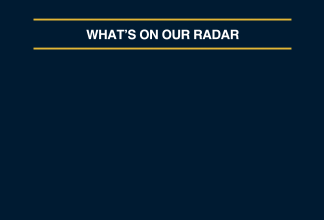TRENDING: Sneaker Mania Marches On
Written by Rita Silvan
Published on August 20, 2018
minute read
Share:
Would you pay over $15,000 for a pair of sneakers that aren't even new? No? Well, some do.
The resale market for high-end sneakers has grown exponentially in the past few years, with some estimates valuing it up to US$1 billion, The Globe and Mail reported last year.On top of that, the athletic footwear industry is growing overall, albeit at a slower pace than a few years back. In the U.S., sales were up 2 per cent in 2017 to almost US$20 billion, according to market research firm NPD Group.
Sneakers have not only edged their way onto the fashion scene, with debuts on the runways of brands such as Céline, Balenciaga and Gucci, but strides are being made elsewhere as well. We've seen more celebrity tie-ups, limited editions, sports and so-called athleisure trends, and when it comes to the resale market, even stock-market-like platforms.
Lace up as we take a peek into what's happening in the world of sneakers.
Celebrity Sneakerheads
Brand tie-ups with celebrities are usually a sure-fire way to achieve cult status, and limited-edition collections help drive demand. The top athletic footwear brands have lucrative contracts with A-listers in music, fashion and/or sports. Whether the sneakers fall into the performance or fashion categories, celebrity collaborations grab attention.
Among some of the best known tie-ups is Nike's partnerships with NBA stars LeBron James and Kevin Durant. Nike controlled around 50 per cent of the U.S. athletic footwear market as of last August, according to NPD data cited by The New York Times.
German sportswear brand Puma recently partnered with music and media mogul Jay Z and his company Roc Nation on the launch of a new basketball line. Puma has also joined forces with the likes of Rhianna, Kylie Jenner, Selena Gomez, The Weeknd and Cara Delevigne, as well as numerous rappers. In the sports world, Puma signed basketball star Marvin Bagley III to a lucrative 5-year deal that will pay him more than his NBA contract.
Adidas, which was the fastest growing brand in 2017, according to NPD Group, has successful partnerships with Kanye West (Yeezy label) and James Harden. In fact, Yeezy sports shoes are so popular that some retailers have launched lotteries, with the lucky customers being offered the chance to purchase them.
Lifestyle Trends
The blurring of casual wear and sportswear, commonly referred to as athleisure, has been giving a lift to the industry. NPD Group reported that sports leisure sales grew by 17 per cent last year, compared with a decline of 10 per cent in the performance category, which includes running and training shoes. After decades of accepting that foot and back pain is the price of looking "cool," consumers are embracing comfort. Comfort is also key for the world's aging population. A global interest in healthier lifestyles, greater disposable income and high-profile sports events are all driving demand for the global athletic footwear market.
The Sneaker Stock Market
Serious sneakerheads snap up hot, limited edition shoes and offer them for resale with markups of anywhere from 200 to 2,000 per cent on digital sites like StockX, a start-up that counts celebrities like Mark Wahlberg and Eminem as investors. The sneakers are viewed as assets and resold to eager buyers. Taking a page from regulated stock markets, StockX uses indices which list the shoes with ticker symbols. It acts as the intermediary by showing bid-ask prices, running sales figures, and trending styles to help buyers and sellers make informed decisions.
Massive love-ins like Sneaker Con also attract collectors hoping to score a coveted pair or two. The famous sneaker convention came to Canada last year for the first time, and attracted record crowds.
With all the hype, is the sneaker bubble about to pop? Hard to say, but demographic and lifestyle trends so far has given this fad some legs.
RBC Direct Investing Inc. and Royal Bank of Canada are separate corporate entities which are affiliated. RBC Direct Investing Inc. is a wholly owned subsidiary of Royal Bank of Canada and is a Member of the Canadian Investment Regulatory Organization and the Canadian Investor Protection Fund. Royal Bank of Canada and certain of its issuers are related to RBC Direct Investing Inc. RBC Direct Investing Inc. does not provide investment advice or recommendations regarding the purchase or sale of any securities. Investors are responsible for their own investment decisions. RBC Direct Investing is a business name used by RBC Direct Investing Inc. ® / ™ Trademark(s) of Royal Bank of Canada. RBC and Royal Bank are registered trademarks of Royal Bank of Canada. Used under licence.
© Royal Bank of Canada 2025.
Any information, opinions or views provided in this document, including hyperlinks to the RBC Direct Investing Inc. website or the websites of its affiliates or third parties, are for your general information only, and are not intended to provide legal, investment, financial, accounting, tax or other professional advice. While information presented is believed to be factual and current, its accuracy is not guaranteed and it should not be regarded as a complete analysis of the subjects discussed. All expressions of opinion reflect the judgment of the author(s) as of the date of publication and are subject to change. No endorsement of any third parties or their advice, opinions, information, products or services is expressly given or implied by RBC Direct Investing Inc. or its affiliates. You should consult with your advisor before taking any action based upon the information contained in this document.
Furthermore, the products, services and securities referred to in this publication are only available in Canada and other jurisdictions where they may be legally offered for sale. Information available on the RBC Direct Investing website is intended for access by residents of Canada only, and should not be accessed from any jurisdiction outside Canada.
Explore More

Here’s What Every Canadian Should Know About Estate Planning
Insights from Leanne Kaufman to help you feel more confident as you plan
minute read

3 Things We're Watching This Week
What the Inspired Investor team is watching
minute read

What’s Driving the Recent Surge in Gold Prices
Here are some things to watch with the gold market
minute read
Inspired Investor brings you personal stories, timely information and expert insights to empower your investment decisions. Visit About Us to find out more.







